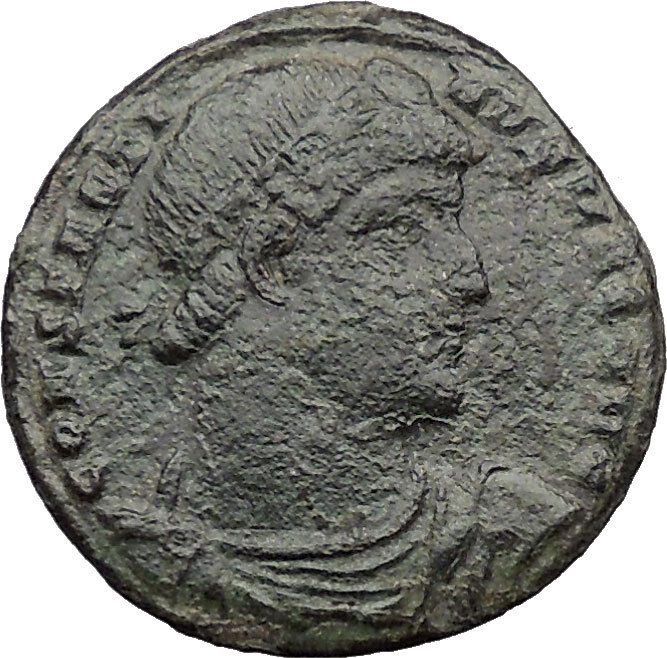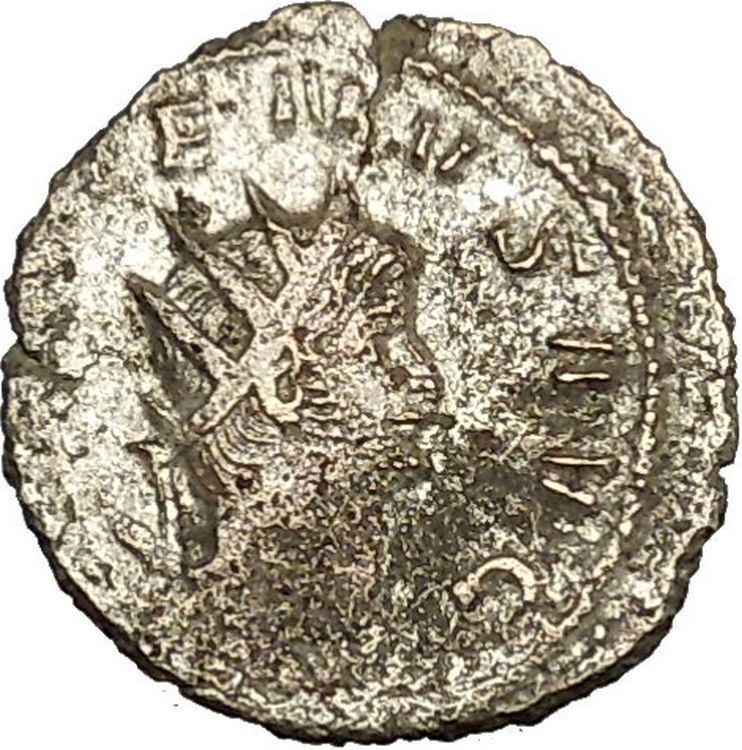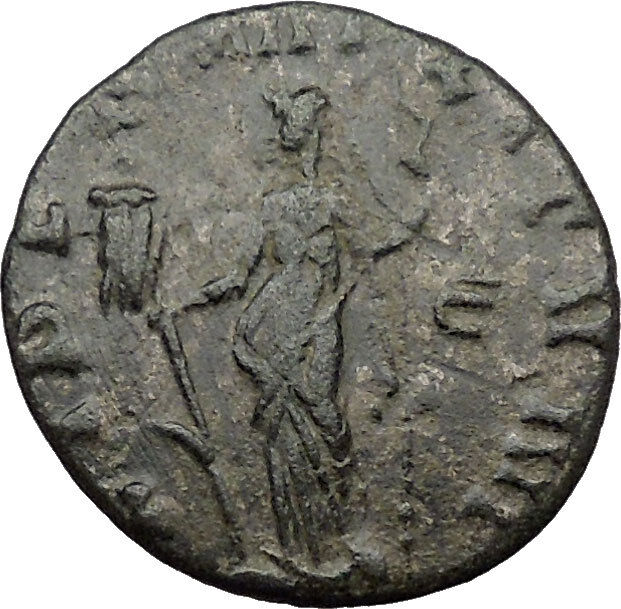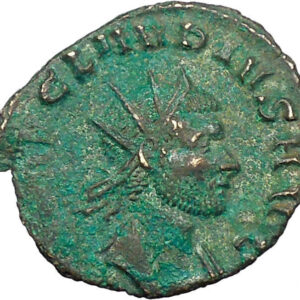|
Tacitus – Roman Emperor: 275-276 A.D.
Potin Tetradrachm 19mm (8.16 grams) Alexandria mint in Egypt A.D.
Dated RY 1, struck 275/276 A.D.
Reference: Dattari (Savio) 5515. Emmett 3971.1. K&G 110.5.
A K KΛ TAKITOC CЄB, Laureate, draped and cuirassed bust of Tacitus to right.
ЄΤΟΥC-A Dikaiosyne standing front, head to left, holding scales in her right hand and cornucopiae in her left.
You are bidding on the exact item pictured, provided with a Certificate of Authenticity and Lifetime Guarantee of Authenticity.
In ancient Greek culture, Dikē (Greek: Δίκη, English translation: “justice”) was the spirit of moral order and fair judgement based on immemorial custom, in the sense of socially enforced norms and conventional rules. According to Hesiod (Theogony, l. 901), she was fathered by Zeus upon his second consort, Themis.
Depiction
The sculptures of the Temple of Zeus at Olympia have as their unifying iconographical conception the dikē of Zeus,[1] and in poetry she is often the attendant (paredros) of Zeus. In the philosophical climate of late 5th century Athens, dikē could be anthropomorphised as a goddess of moral justice. She was one of the three second-generation Horae, along with Eunomia (“order”) and Eirene (“peace”):
“Eunomia and that unsullied fountain Dikē, her sister, sure support of cities; and Eirene of the same kin, who are the stewards of wealth for mankind – three glorious daughters of wise-counselled Themis.”
She ruled over human justice, while her mother Themis ruled over divine justice. Her opposite was adikia (“injustice”): in reliefs on the archaic Chest of Cypselus preserved at Olympia, a comely Dikē throttled an ugly Adikia and beat her with a stick.
The later art of rhetoric treated the personification of abstract concepts as an artistic device, which devolved into the allegorizing that Late Antiquity bequeathed to patristic literature. In a further euhemerist interpretation, Dikē was born a mortal and Zeus placed her on Earth to keep mankind just. He quickly learned this was impossible and placed her next to him on Mount Olympus.
Dike Astraea
One of her epithets was Astraea, referring to her appearance as the constellation Virgo. According to Aratus’ account of the constellation’s origin, Dike lived upon Earth during the Golden and Silver ages, when there were no wars or diseases, men did not yet know how to sail, and men raised fine crops. They grew greedy, however, and Dike was sickened. She proclaimed:
Behold what manner of race the fathers of the Golden Age left behind them! Far meaner than themselves! but you will breed a viler progeny! Verily wars and cruel bloodshed shall be unto men and grievous woe shall be laid upon them.
-Aratus, Phaenomena 123
Dike left Earth for the sky, from which, as the constellation, she watched the despicable human race. After her departure, the human race declined into the Brazen Age, when diseases arose and they learned how to sail.
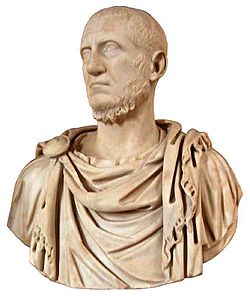 Marcus Claudius Tacitus (ca. 200 – June 276) was a Roman Emperor from September 25 275, to June 276. Marcus Claudius Tacitus (ca. 200 – June 276) was a Roman Emperor from September 25 275, to June 276.
He was born in Interamna (Terni), in Italia. He circulated copies of the historian Gaius Cornelius Tacitus’ work, which was barely read at the time, and so we perhaps have him to thank for the partial survival of Tacitus’ work; however, modern historiography rejects his claimed descent from the historian as forgery. In the course of his long life he discharged the duties of various civil offices, including that of consul in 273, with universal respect.
After the assassination of Aurelian, he was chosen by the Senate to succeed him, and the choice was cordially ratified by the army. His first action was to move against the barbarian tribes that had been gathered by Aurelian for his Eastern campaign, and which had plundered the Eastern Roman provinces after Aurelian had been murdered and the campaign cancelled. His half-brother, the Praetorian Prefect Florianus, and Tacitus himself won a victory against these tribes, among which Heruli, which granted the emperor the title Gothicus Maximus.
Tacitus probably died of fever (according to Aurelius Victor, Eutropius and the Historia Augusta) – though Zosimus claims he was assassinated – at Tyana in Cappadocia in June 276.
|





 Marcus Claudius Tacitus (ca. 200 – June 276) was a Roman Emperor from September 25 275, to June 276.
Marcus Claudius Tacitus (ca. 200 – June 276) was a Roman Emperor from September 25 275, to June 276.

